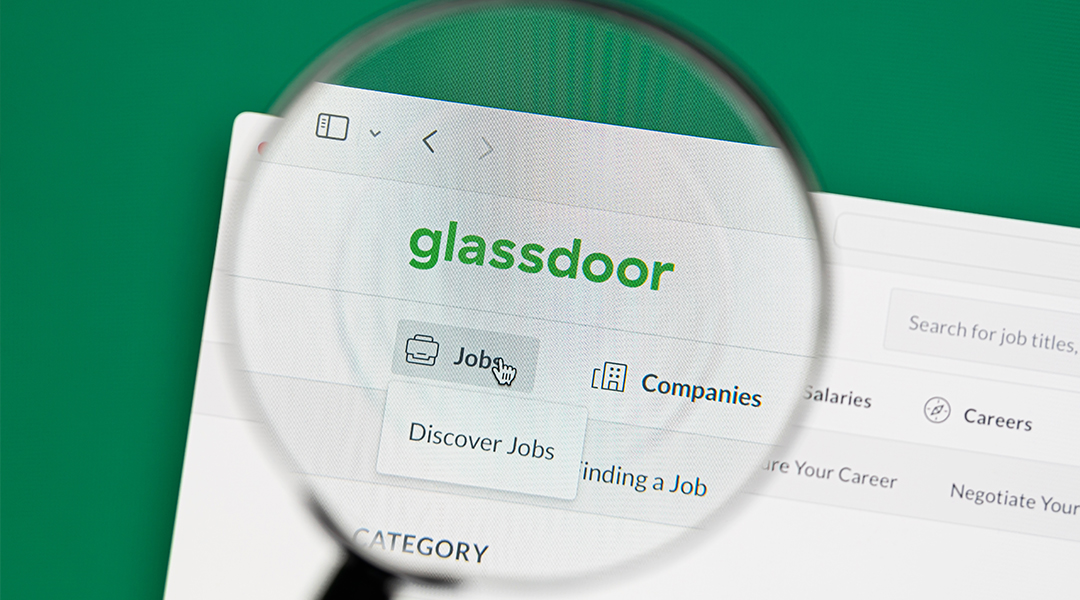Explore the ongoing concerns about data privacy with Glassdoor, focusing on the users glassdoorbelanger arstechnica, and how it affects the broader tech community, including insights from Ars Technica. Discover the implications for user anonymity, data handling, and online reviews.
Introduction
The online professional review platform Glassdoor has long been a trusted resource for users seeking insights into companies, work cultures, and compensation practices. Its promise of anonymity allowed users to share honest feedback about their workplaces, fostering an environment where transparency could thrive. However, recent events involving users from GlassdoorBelanger and the analysis by tech media, like Ars Technica, have cast a shadow over the platform’s commitment to user privacy. The controversial decision to add real names to user profiles has triggered significant backlash from those who value their anonymity when posting sensitive reviews about employers.
What Happened with GlassdoorBelanger?
In recent months, a wave of complaints surfaced from GlassdoorBelanger users who discovered that their real names were appearing on their profiles without prior consent. These users had trusted Glassdoor’s policies, which historically emphasized anonymous reviews, only to find that their profiles were now linked to their personal identities. This change raised several questions about user consent, data privacy, and the platform’s accountability in maintaining the confidentiality of its members. For those using the site to voice concerns about workplace conditions, this breach of trust was especially troubling.
Glassdoor’s Policy Changes and the Fishbowl Acquisition
The incident can be traced back to Glassdoor’s acquisition of Fishbowl, a professional networking app known for requiring user identity verification. This shift likely influenced Glassdoor’s decision to integrate more personal user data into its platform. While Fishbowl’s model focused on transparency and verified identities, Glassdoor’s reputation had been built on a foundation of anonymous feedback. The merger blurred these lines, creating confusion among users who were unaware that their reviews might now be linked to their real names.
How Does This Affect the Tech Community?
Tech communities, particularly those on platforms like Ars Technica, have been quick to report on the situation, emphasizing how this change could affect not only Glassdoor’s reputation but also the broader dynamics of online professional networking. Many users, especially those in industries where job security can be precarious, rely on platforms like Glassdoor to maintain anonymity while sharing their experiences. The introduction of real names puts them at risk of retaliation from employers, undermining the very purpose of the platform. As users voice their concerns, the tech community has raised important questions about how online platforms handle sensitive data and the ethical implications of such policies.
Privacy Concerns and the Importance of Anonymity
The primary concern raised by users and tech experts alike revolves around privacy. Anonymity allows individuals to express honest opinions about their employers without fear of repercussion, especially in industries where negative feedback could harm one’s career. For instance, if a software developer were to share a critique about a project or management style, the potential for retribution—such as being passed over for promotion or even losing their job—could become a reality if their real name is publicly associated with their review. This breach of trust has led many users to reconsider their use of Glassdoor, exploring alternative platforms that prioritize user privacy and data protection.
What Users Expect from Glassdoor
Users have long relied on Glassdoor for transparency about companies. However, with the new policy change, many are questioning whether Glassdoor still prioritizes user needs. If employees cannot speak freely about their experiences, the value of Glassdoor as a resource becomes diminished. Users are now calling for clear communication from Glassdoor about how they will address these privacy concerns, ensuring that anonymity is not sacrificed in the name of data monetization or user verification.

Data Security: The Core Issue at Hand
As the GlassdoorBelanger situation unfolds, the central issue remains data security. Users want reassurance that their personal information, including their name, job title, and employment history, is protected from misuse. In light of recent breaches in data security across various platforms, the prospect of sensitive information being exposed raises alarms. Glassdoor must take swift action to rectify this situation, demonstrating a commitment to securing user data and safeguarding their privacy. Without these assurances, the trust that Glassdoor has built over the years could be irreparably damaged.
The Role of Tech Media in Shaping Public Opinion
Tech media outlets like Ars Technica have played a pivotal role in highlighting the GlassdoorBelanger controversy. Through investigative journalism, they have brought to light the complexities of Glassdoor’s new policies and the potential consequences for its users. This coverage has sparked widespread debate within the tech community, urging Glassdoor to reconsider its approach to user privacy. Furthermore, these discussions have empowered users to voice their concerns publicly, demanding accountability from the platform. Tech media’s role in holding platforms like Glassdoor accountable is crucial in maintaining the balance between business objectives and user rights.
Alternative Platforms for Anonymity
In response to the issues with Glassdoor, some users have started exploring alternative platforms that offer better privacy controls. Websites like Indeed and Fairygodboss provide users with the ability to leave reviews and connect with other professionals without the same level of personal data exposure. While these platforms may not have the same reach or detailed company reviews as Glassdoor, they offer a more secure environment for those who value their privacy. As a result, Glassdoor faces increasing competition from these alternatives, which may capitalize on the growing demand for secure, anonymous online spaces.
The Ethics of User Data Monetization
Another dimension to the GlassdoorBelanger controversy is the ethical consideration surrounding user data monetization. Platforms like Glassdoor often rely on user-generated content for their business model, which includes selling job listings, company insights, and other services to employers. However, the value of user reviews lies in their authenticity, which depends on the anonymity of the individuals providing the feedback. By tying personal identities to reviews, Glassdoor risks compromising this authenticity, potentially affecting the integrity of the platform. The ethical implications of monetizing user data in this manner have sparked a larger conversation about transparency and fairness in the tech industry.
The Future of Glassdoor: Restoring Trust
As Glassdoor navigates the fallout from the GlassdoorBelanger controversy, the platform must make significant strides to restore user trust. This includes offering clear and transparent communication about the changes made to user profiles and how it will protect user anonymity moving forward. Additionally, Glassdoor should consider implementing stricter data privacy policies and allowing users to control the visibility of their personal information. By taking these steps, Glassdoor can regain the confidence of its users and reaffirm its commitment to fostering an open and secure space for professional feedback.
Employer Retaliation: A Growing Concern
One of the most serious risks associated with the exposure of real names on Glassdoor profiles is the potential for employer retaliation. Employees may fear that their honest reviews—especially those highlighting negative aspects of their workplace—could result in professional repercussions. For workers in competitive industries or those who hold sensitive positions, the fear of retaliation is a powerful deterrent to leaving honest feedback. Therefore, ensuring anonymity is not only a matter of user trust but also a matter of workplace fairness and protection.

Glassdoor’s Response to User Feedback
Since the controversy began, Glassdoor has made efforts to address user concerns, including issuing statements about its data policies. However, many users feel that these responses have been insufficient, with little explanation about how the integration with Fishbowl will affect privacy moving forward. Glassdoor must do more than just issue statements; it must take concrete actions to rebuild its reputation and restore its commitment to user privacy.
Legal Implications and User Rights
The GlassdoorBelanger issue also raises important legal questions regarding user rights and privacy laws. Depending on the jurisdiction, users may have legal protections related to their personal data, especially when it comes to online platforms. In some countries, there are strict laws regarding data collection and consent, such as the General Data Protection Regulation (GDPR) in the European Union. Glassdoor must ensure that its policies align with these legal standards and respect users’ rights to privacy. Failure to do so could result in legal action, which could further damage the platform’s reputation and lead to costly consequences.
Rebuilding Trust in Professional Platforms
The incident with Glassdoor highlights a broader challenge faced by many professional platforms that collect and monetize user data. Users want to feel secure when sharing their personal experiences, especially in a professional context. Platforms like Glassdoor must strike a delicate balance between gathering valuable insights for employers and maintaining user privacy. As more users demand transparency and control over their data, Glassdoor and other platforms must adapt or risk losing their user base to competitors that prioritize privacy and security.
The Bigger Picture: A Shift in Online Privacy
The controversy surrounding Glassdoor and its users is part of a larger trend in which online platforms are grappling with issues of privacy and data security. As more people become aware of the risks associated with sharing personal information online, there is a growing demand for platforms to adopt stronger privacy practices. Glassdoor’s response to this issue could set an important precedent for other platforms in the industry.
Conclusion
The GlassdoorBelanger controversy underscores the critical need for online platforms to prioritize user privacy and security. The shift away from anonymity has left many users feeling exposed and vulnerable, and Glassdoor must take swift action to restore trust. By implementing stronger privacy measures, being transparent about policy changes, and offering users greater control over their data, Glassdoor can work toward rebuilding its reputation and ensuring that its platform remains a valuable resource for honest workplace feedback. The tech community, including outlets like Ars Technica, will continue to monitor the situation closely, ensuring that Glassdoor and similar platforms remain accountable to their users.
Read also: flexible budgeting aggr8budgeting by aggreg8






